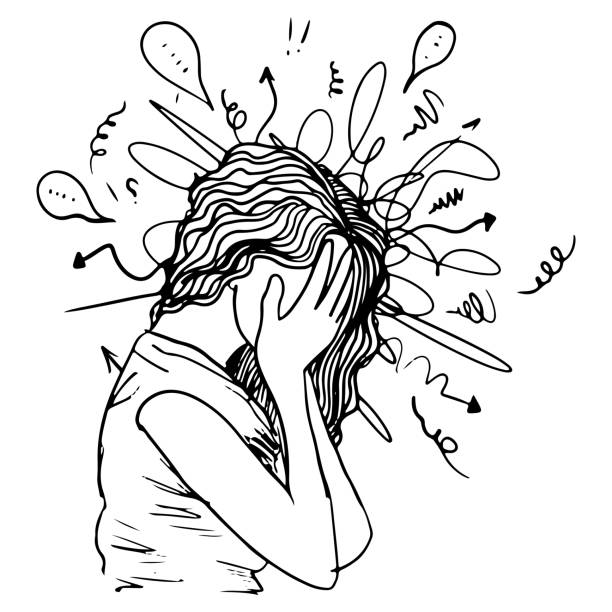Understanding Dizziness: Causes, Symptoms, and Treatment
Understanding Dizziness: Causes, Symptoms, and Treatment

Dizziness is a common experience that most people will encounter at some point. It’s an umbrella term that describes various sensations, including feeling faint, dizzy, weak, or unsteady. It can be a symptom of many conditions, ranging from minor issues like dehydration to more serious health concerns such as neurological disorders.
It ranks among the most prevalent reasons adults seek medical attention. Persistent dizzy spells or frequent dizziness can have a substantial impact on your daily life. However, it seldom indicates a life-threatening condition.
The treatment for it hinges on the underlying cause and the specific symptoms experienced. It is generally effective, although the issue may reoccur.

What Causes Dizziness?
It can result from a myriad of factors and underlying conditions. Here are some of the most common causes:
Inner Ear Problems
Conditions like benign paroxysmal positional vertigo (BPPV), Meniere’s disease, and vestibular neuritis can disrupt this balance system, leading to it.
Infections
Viral or bacterial infections affecting the ear or the brain, such as labyrinthitis or meningitis, can also lead to it.
Circulatory Issues
Blood circulation problems, such as low blood pressure or cardiac arrhythmias, can cause inadequate blood flow to the brain, resulting in episodes of dizziness.
Medications
Some medications, including those used to treat blood pressure, anxiety, and depression, can have dizziness as a side effect.
Neurological Disorders
Neurological conditions like Parkinson’s disease, multiple sclerosis, and even migraines can manifest dizziness among their symptoms.
Other Causes
Dehydration, hypoglycemia (low blood sugar), and anxiety disorders are also known to cause dizziness.

Symptoms
The sensation of it can vary significantly from person to person. Commonly reported symptoms include:
- A false sense of spinning or motion (vertigo)
- Lightheadedness or feeling faint
- Loss of balance or unsteadiness
- A feeling of floating or heavy-headedness
- Nausea or vomiting
- Headache
- Ringing in the ears (tinnitus)
- Hearing loss
- Blurred vision
Understanding the specific symptoms can help healthcare providers diagnose the underlying cause of it.
Diagnosing Dizziness
Given the multitude of possible causes, diagnosing the exact reason for dizziness can be complex. Healthcare providers often begin with a thorough medical history and physical examination. They may ask about the duration, frequency, and triggers of the dizziness episodes.
Healthcare providers may also recommend certain tests, including:
- Blood Tests: To check for infections, anemia, or other conditions that might cause dizziness.
- Hearing Tests: To identify any hearing loss or inner ear problems.
- Balance Tests: To assess the function of the inner ear and balance system.
- Brain Imaging: MRI or CT scans can help identify any issues with the brain that could lead to dizziness.

Treatment and Management
Here are some common treatment approaches:
1. Vestibular Rehabilitation
This form of physical therapy is designed to help strengthen the vestibular system and improve balance. It’s particularly effective for it caused by inner ear issues.
2. Medication
Doctors may prescribe medications to relieve symptoms or address the root cause of it. For instance, antihistamines or anti-nausea drugs can help manage symptoms, while antibiotics can treat ear infections.
3. Lifestyle Changes
Simple lifestyle modifications can sometimes reduce dizziness. Staying hydrated, avoiding caffeine and alcohol, and managing stress can all contribute to fewer episodes of it.
4. Surgical Options
In rare cases, surgery may be necessary to treat underlying issues causing dizziness, such as a tumor or a significant inner ear disorder.
When to Seek Medical Attention
While occasional dizziness is typically not a sign of a serious condition, you should seek medical attention if you experience:
- Sudden, severe dizziness
- Severe headache, convulsions, or changes in speech, vision, or hearing
- Falling or difficulty walking
- Ongoing vomiting or other significant health changes
Factors contributing to increased risk
Elements that may elevate the likelihood of experiencing dizziness include:
-
Advancing age. Elderly individuals are at a higher risk of having medical conditions that lead to it, particularly a sensation of imbalance. They are also more likely to be taking medications that can induce it.
-
The previous instance of dizziness. Having encountered dizziness previously increases the likelihood of experiencing it again in the future.

Conclusion
Dizziness is a symptom, not a disease, and its presence signifies that the body is out of balance. Understanding the potential causes and associated symptoms can help individuals seek appropriate care. If you’re experiencing persistent or severe dizziness, it’s crucial to consult with a healthcare provider to determine the underlying cause and appropriate treatment plan. With the right approach, most cases of it can be effectively managed or resolved, restoring balance and quality of life.





